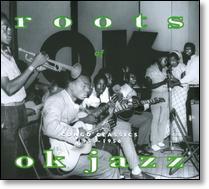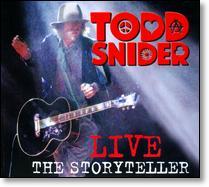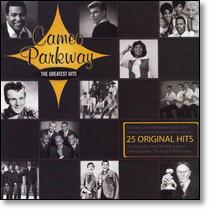A Consumer Guide to the Trailing Edge: February, 2011
Recycled Goods (#82)
by Tom Hull
 |
 |
 |
Looks like the D.O. Misiani and Tabu Ley Rochereau compilations will be real old news before I ever get around to them -- both graded A, no real excuse for why I haven't written them up yet (other than that I paid cash, so don't feel any obligation to any publicist). Still more time-limited than anything else. Unusual that there are more reviews up top than in the "briefly noted" section, although it wouldn't have been hard to squeeze a couple of them down. Could just as well have saved Snider for my Rhapsody Streamnotes column, but live records recycle songs, and this time I didn't have to go through the streaming rigamarole. Thanks for that.
Dave Brubeck: Legacy of a Legend (1954-70 [2010], Columbia/Legacy, 2CD): The key to parsing the awkward title is the relatively narrow timespan covered, limited to Brubeck's Columbia recordings, now managed by Sony's Legacy division. That cuts off the important early recordings and interesting later ones swept up in the excellent The Essential Dave Brubeck, released in 2003 and still the best place to start -- unless you'd rather work through whole albums, like his masterpiece Time Out and others like Jazz at Oberlin (1953) and Live at the Berlin Philharmonie (1970, source of the last two cuts here which end the set on a strong note). The latter features Gerry Mulligan, but most of the rest is quartet with Paul Desmond's delicious alto sax, with some of Brubeck's convoluted piano solo worked in, and three vocal tracks -- Jimmy Rushing, Carmen McRae, and Louis Armstrong, none at peak form or challenged much by the ever-respectful pianist. B+(***)
Frank Fairfield's Pawn Records Presents: Unheard Ofs & Forgotten Abouts (1916-64 [2010], Tompkins Square): Sixteen scattered recordings, each cut to provide a prism back into the pre-recorded past -- old as they are, they sound far older. Scraps recorded in Africa, Indonesia, China, Japan, Hawaii, France; Byzantine liturgical music, Deep South gospel, bagpipes, a "Poor Convict Blues," what sounds like the earliest possible "La Bamba." Too scattered to generalize from, but as raw and arresting as the shock of the past. B+(**)
Alan Jackson: 34 Number Ones (1989-2008 [2010], Arista, 2CD): None from his 2010 album Freight Train, so maybe the label decided the string is done. Leaves him 6 shy of Ronnie Milsap's 40 #1 Hits, but even at his most generic, Jackson's neotrad beats Milsap's schmaltz hands down. Still, this is less consistently inspired than 1995's The Greatest Hits Collection or 2007's 16 Biggest Hits. B+(***) [R]
Lloyd Miller: A Lifetime in Oriental Jazz (1960s-80s [2009], Jazzman): Miller took his Ph.D. in ethnomusicology to Iran in the 1960s, immersing himself in the culture even to the point of hosting a television show using the alias Kurosh Ali Khan. Miller's father was a trad jazz clarinetist, and he picked up many instruments, working in scattered groups but the overall feel here is both more jazz and more exotic than Miller's recent encounter with the Heliocentrics, not that he's trying to fuse the two but somehow feels them both in his bones. Don't have much info, and don't know whether the booklet helps -- a curse of reviewing this way. B+(**) [R]
Roots of OK Jazz: Congo Classics 1955-1956 (1955-56 [2010], Crammed Discs): Imperialism and global capitalism dealt no nation a dirtier deal than the Congo, which after centuries of being drained for American slavery was itself turned into a slave labor camp for the personal benefit of Belgium's King Leopold, was tragically mismanaged by Leopold's successors, had its independence moment in 1960 dashed by a CIA assassination that turned the country over to Mobutu Sese Seko, the very definition of kleptocracy; after Mobutu fell in 1997 Congo (or Zaire, as Mobutu renamed it) was torn apart by civil war spilling over from Rwanda, killing millions. All the more remarkable, then, was the flowering of Cuban-infleuenced pop music in the 1950s, exemplified by the guitarist-bandleader Franco. This collects marvelous early cuts from his OK Jazz and contemporaries (often with Franco on guitar or bass), a crucible of joyous optimism and the beginnings of one of the most notable musicians of the twentieth century. A
Todd Snider: Live: The Storyteller (2010 [2011], Thirty Tigers/Aimless, 2CD): Folk singer from Oregon, cut a live album in 2003, Live: Near Truths and Hotel Rooms that rolled up eight year's worth of smart songs but spread out with equally witty patter -- stories, really, some even more diverting than the songs. Eight years later he's repeating the same trick, and at double length without repeating any of his early songs -- his 2004-06 albums, East Nashville Skyline and The Devil You Know were his best, full of sharply observed, improbably sympathetic characters his storytelling can scarcely improve on. They form the backbone here, gain nothing from the live sonics, let alone his "Eighteen Minutes" disclaimer, but they're so original they feel fresher the second time around than most of the stuff you hear brand new. And the stories are indeed diverting -- the one where he didn't meet NASCAR driver Bill Elliott, the one where he didn't play football, the one where he ruled Portland, OR. And the Rusty Wier cover sounds real fine, its admission covered by another story on how luck happens to one in the right place at the right time. A–
In Series:
Not one of the most important labels of rock and roll's pre-Beatles decade -- not up with Chess or Atlantic, that is -- but as a second tier label from second tier Philadelphia, Bernie Lowe's Cameo Parkway label enjoyed some success, like over 100 chart singles. They didn't adjust well (with one notable exception) to the British Invasion, and wound up in Allen Klein's back pocket. Klein's main contribution was to keep their records out of print, a stretch that he finally broke in 2005 releasing a box set and some best-ofs. I reviewed the box set at the time, but wasn't able to get hold of the best-ofs. When I noticed the Chubby Checker on Rhapsody recently, I figured it was time to fix that. Also wrote a new review of the box set, mostly because I had forgotten that I had reviewed it before. (Note that I had pretty much the same reaction both times.)
The Best of Chubby Checker: 1959-1963 [Cameo Parkway] (1959-63 [2005], ABKCO): Philadelphia's answer to Fats Domino, got his big hits busting dance moves from "The Twist" (a Hank Ballard song) to "Pony Time" to "Limbo Rock" -- a formula his main songwriter, Kal Mann, shamelessly milked for "Twistin' USA" and "Let's Twist Again" and "Slow Twistin'" and "Twist It Up" and the multilingual "Twistin' Round the World," not to mention "Let's Limbo Some More"; one brilliant obscurity here, "Popeye the Hitchhiker," a terrific "The Hucklebuck," a riotous "Surf Party," jump sax breaks, pure party music. A- [R]
The Best of the Dovells: 1961-1965 [Cameo Parkway] (1961-65 [2005], ABKCO): Another Philadelphia vocal group, five white guys with assumed names (nés Gross, Gordesky, Borisoff, Freda, Silver), started with a number one dance anthem, "The Bristol Stomp," followed that with "Foot Stompin'," and kept returning to dance moves -- "The Jitterbug" was one of the most frenetic; the closer, "1-2-3," is probably Len Barry's solo version, good enough Holland-Dozier-Holland sued him over it. B+(**) [R]
The Best of Charlie Gracie: 1956-1958 [Cameo Parkway] (1956-58 [2006], ABKCO): Formally a rockabilly singer, which must have seen worth a shot with Elvis Presley tearing up the charts; actually a young kid from Philadelphia who could just as well have turned into Fabian or Bobby Rydell, so his plucky beat and twang is a revelation; his one hit, "Butterfly," got scooped by Andy Williams -- nice to rediscover it here. A- [R]
The Best of the Orlons: 1961-1966 [Cameo Parkway] (1961-66 [2005], ABKCO): Philadelphia doo-wop group, three young women (Rosetta Hightower, Shirley Brickley, Marlena Davis) plus a guy, Stephen Caldwell, who takes an occasional lead but more often provides a novelty twist; they got their break with a dance anthem, "The Wah-Watusi"; the hits dwindled after "South Street" but they kept picking up new tricks, some echoing the Marvelettes. A- [R]
The Best of ? & the Mysterians: 1966-1967 [Cameo Parkway] (1966-67 [2005], ABKCO): The British Invasion pushed Cameo Parkway to look beyond its Philadelphia homebase and its doo-wop/blue-eyed soul/girl group/dance mania standbys and look for something competitive, like this organ-propelled Flint, MI group -- actually Texas-born Mexican-Americans; one huge hit, "96 Tears," a lot of filler -- this best-of is also their complete works -- which holds up remarkably well. B+(***) [R]
The Best of Bobby Rydell: 1959-1964 [Cameo Parkway] (1959-64 [2005], ABKCO): Another teenager from Philadelphia, his name straightened out from Ridarelli, scored a couple snappy hits with "Kissin' Time" and "Wild One," followed that up with a "Volare" that outsold Dean Martin's 1958 hit, then the tango-flavored "Sway"; after that, dwindling returns, fittingly ending with an overpumped Beatles cover, and yet another "Jingle Bell Rock." B+(**) [R]
The Best of Dee Dee Sharp: 1962-1966 [Cameo Parkway] (1962-66 [2005], ABKCO): More grit to her voice than you'd expect, but once again she mostly hit with dance anthems -- "Mashed Potato Time" was so big that the sequel "Gravy (For My Mashed Potatoes)" charted top-ten; later on she matures as a soul singer, graduating from Appell-Mann novelties to husband Kenny Gamble. B+(***) [R]
The Best of the Tymes: 1963-1964 [Cameo Parkway] (1963-64 [2005], ABKCO): Male vocal group, five strong, the most old-fashioned of doo-wop groups; like many Cameo Parkway groups, their biggest hits came early -- the classic "So Much in Love" and the sweepingly grand "Wonderful! Wonderful!"; remarkably steady thereafter, closing with a barely subclassic "Goodnight My Love." B+(***) [R]
Cameo Parkway: 1957-1967 (1956-67 [2005], ABKCO, 4CD): Not a great label but they had their moments -- must have a dozen or more number one singles, maybe twice that top ten, and their key artist best-ofs flow well even when the artists are decidedly minor (as all of them were), but rather than stick with what worked this samples the whole shmear, and it gets pretty choppy, especially toward the end; how much you appreciate this depends on how inspired you find such quirks as Jo Ann Campbell's "Wolverton Mountain," Clint Eastwood's "Rowdy," Senator Bobby's "Wild Thing," and Screamin' Lord Sutch's "She's Fallen in Love With the Monster Man." B+(**)
Cameo Parkway: The Greatest Hits (1956-66 [2006], ABKCO): More big type on the cover: "25 Original Hits"; couldn't get Rhapsody to actually play this, so I picked out the song list from the box set, and that worked. Only two songs not on the eight single-artist best-ofs: "Silhouettes" by the Rays, one of the great doo-wop singles, and John Zacherle's hilarious "Dinner With Drac, Pt. 1," which perfectly follows Chubby Checker's jubillant "Limbo Rock." A [R]
Briefly Noted
Henry Brun and the Latin Playerz: 20th Anniversary (1992-2010 [2010], Richport): Drummer/congalero, started his band in 1989 but his discography is thin and the compilation is back-loaded; the Latin groovez are little out of the ordinary, but swell with warmth and good feeling over the long haul; Judi Deleon sings several, standards like "Lullaby of Birdland," "Lover Man," and "Bye Bye Blackbird" -- all high points. B+(**)
Norah Jones: . . . Featuring Norah Jones (2001-10 [2010], Blue Note): One track from The Little Willies, a couple of her own feat. someone else, the rest her guest shots on others' records, including an OutKast/Q-Tip/Talib Kweli trifecta in the middle that won't push her fans much out of their comfort zone; good voice, good taste, good manners, eminently listenable except for Ryan Adams. B [R]
Mike Marshall: An Adventure 1999-2009 (1996-2009 [2010], Adventure Music): Mandolinist, started out in bluegrass with a 1987 album called Gator Strut, but eventually took a liking to Brazilian choro and set up shop, releasing a few dozen records by a wide range of Brazilian artists; this samples his own grooveful string-driven oeuvre, working back to his first Brazil Duets. B+(**)
Spiritual Jazz: Esoteric, Modal and Deep Jazz From the Underground 1968-77 (1968-77 [2008], Jazzman): Obscure funk tracks -- the only names I recognize are Lloyd Miller, Mor Thiam, and Leon Gardner, and even those are names I rarely run into -- not sure what the unifying theme really is but they flow and feel like some sort of harmony. B+(**) [R]
Legend: B+ records are divided into three levels, where more * is better. [R] indicates record was reviewed using a stream from Rhapsody. The biggest caveat there is that the packaging and documentation hasn't been inspected or considered, and documentation is especially important for reissues. But also my exposure to streamed records is briefer and more limited, so I'm more prone to snap judgments.
For this column and the previous 81, see the archive.
Additional Consumer News
Copyright © 2011 Tom Hull.